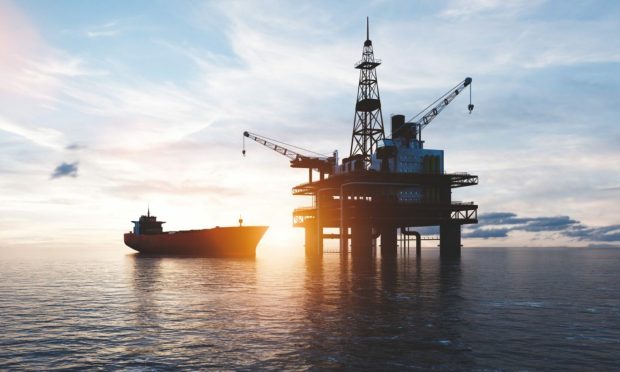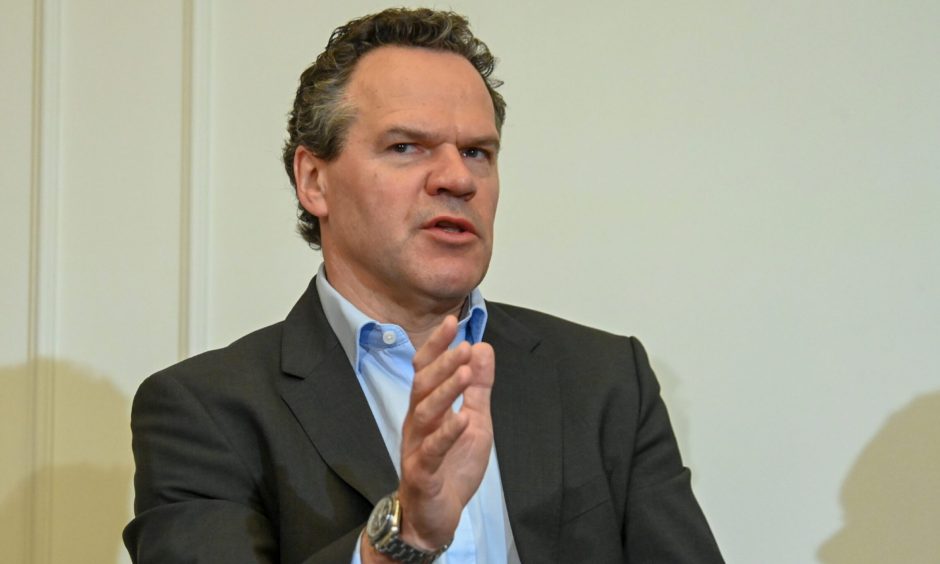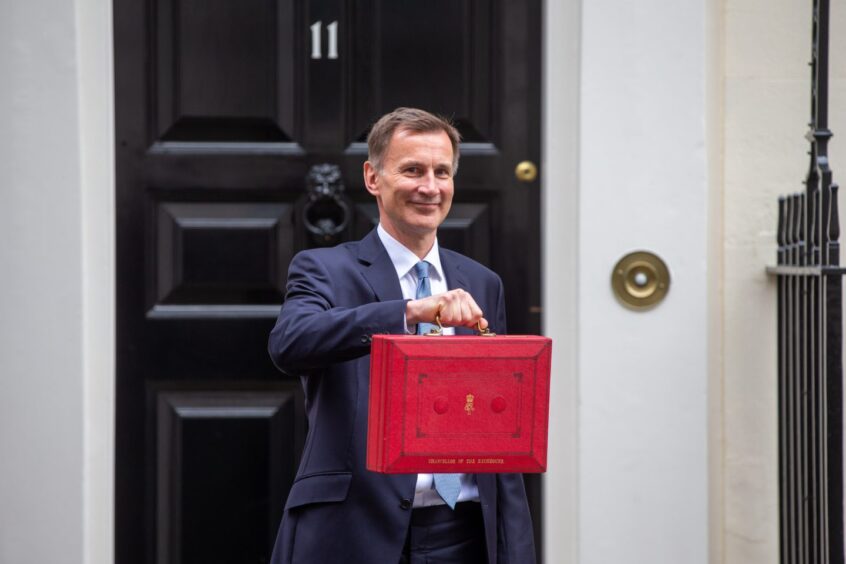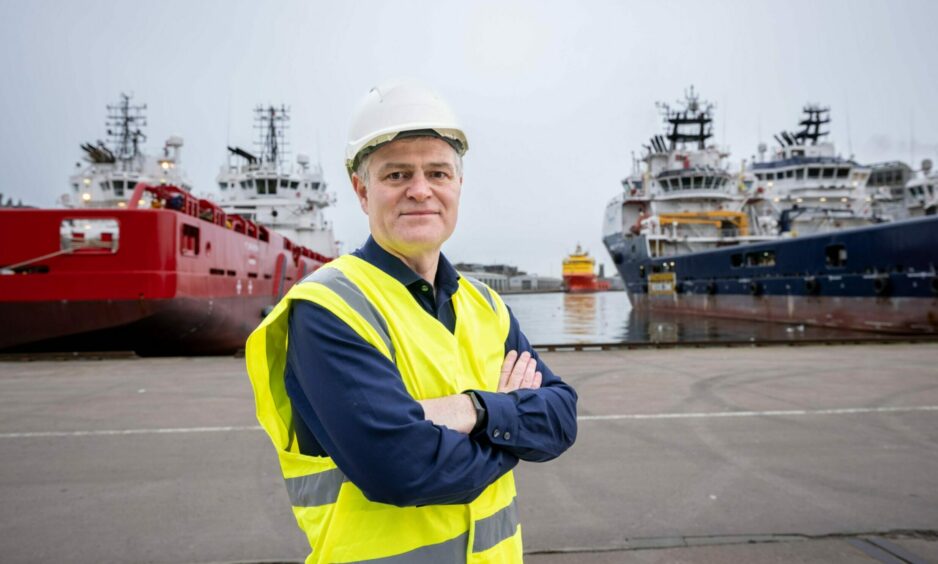The UK Government’s decision to extend the controversial windfall tax on energy producers “misses a trick” a North Sea industry expert said today.
Aberdeen-based Bob Ruddiman, who heads up the energy team at law firm Burness Paull, said he was “disappointed but not surprised” by the move.
Chancellor Jeremy Hunt confirmed the windfall tax, officially known as the Energy Profits Levy (EPL) will be extended by a year until 2029.
Widely anticipated
It was widely anticipated – but also feared among many of the tens of thousands of people and businesses who make their living from the North Sea oil and gas industry.
Cutting or halting the EPL was also a central demand of Scottish Tories chasing north-east votes in the next general-election. But their pleas, ultimately, fell on deaf ears at UK level.
My sense of disappointment is in the government’s failure to look at everything in the round.”
Bob Ruddiman, head of energy, Burness Paull
Mr Ruddiman said it was hardly the “holistic” approach to Britain’s energy industry he was looking for.
He added: “I fully expected the windfall tax to remain but hoped it wouldn’t be pushed out to 2029.
“My sense of disappointment is in the government’s failure to look at everything in the round.
“It (the windfall tax) truly factors into all the elements of UK energy security and our ability to produce home-grown energy in a greener fashion, while continuing to support expertise and skills.
“We have to face the reality that massive investment is required in the UK energy system.
“I’m not sure we are encouraging that with the windfall tax.”
‘We need to be taking into account the bigger picture’
He continued: “We are making it increasingly difficult for companies to make long-term investment commitments. The windfall tax doesn’t encourage incremental investment.
“We have resources and some infrastructure here (in the north-east) to produce energy in the cleanest way possible. But this tax is making it difficult. We need to be taking into account the bigger picture.”
Russia’s invasion of Ukraine has highlighted more than ever the importance of secure supplies of energy in the UK, Mr Ruddiman said, adding: “I feel we are missing a trick.”
And politicians “of all hues” are failing to recognise the huge overlap in skills and other resources that exists between the oil and gas industry and other energy sectors, he said.
He went on: “They are not looking at energy through that lens. They need to grasp the ocean energy capability we have in the north-east.
“I don’t think the Budget fully recognised that aspect, while there is not enough thought being given to security of supply.”
What is the windfall tax and when was it previously due to be abolished
The EPL was introduced in May 2022 in response to soaring household energy bills and skyrocketing industry profits.
It charges oil and gas firms an extra 35% tax on the money they make in the UK.
The levy could be scrapped altogether if oil and gas prices fall substantially but industry experts don’t expect this to happen.
Keeping the windfall tax until 2019 – it was previously due to be abolished in March 2028 – will likely raise around £1.5 billion for the Treasury, Mr Hunt said.
The chancellor added: “We want to encourage investment in the North Sea so we will retain generous investment allowances for the sector.”
Aberdeen and Grampian Chamber of Commerce policy director Ryan Crighton said the windfall tax move “heaps more uncertainty on a sector which needs stability to survive”.
Mr Crighton continued: “Not only is Jeremy Hunt losing the support of industry, he is also losing the support of his north-east parliamentarians who understand that the windfall tax is bad for jobs, bad for investment, bad for energy security and bad for the energy transition.
“We need investment in new North Sea oil and gas fields to maintain jobs and offset declining production.
“Without that investment, production could halve by 2030, which places thousands – perhaps tens of thousands – of jobs at risk.”
Current government policy drives the import of oil and gas from other sources but at a significant cost to the local economy.”
Moray Barber, EY
Moray Barber, EY Scotland’s head of Aberdeen, said: “Recent higher oil and gas prices and the issues of global energy security would, in normal circumstances, have been expected to increase investment and production in the North Sea.
“However, windfall taxes – which have been extended by a year to 2029 – and opposition to exploration and the development of new fields is preventing this.
“Current government policy drives the import of oil and gas from other sources but at a significant cost to the local economy.”
Recent EY research revealed Aberdeen is the worst city in the UK for economic growth.
David Whitehouse, chief executive of trade body Offshore Energies UK, said: “Today’s budget announcement extending the windfall tax on North Sea oil and gas producers is a disappointing blow.
“The industry is being taxed on windfall profits which no longer exist and facing a fourth round of fiscal change and turmoil in less than two years, making it impossible to plan investment for the energy transition.”
Mr Whitehouse added: “We are extremely disappointed the government continues to ignore clear evidence that we need investment in offshore energy production to grow the economy and achieve net-zero.
“We have identified £200bn of investment in oil and gas and the UK’s wider energy transition awaiting the green light, which will not happen with such globally uncompetitive taxation in place.
“Thousands of jobs and billions of pounds in national revenue are at risk because of the destabilising impact of these tax decisions.”
Last year Harbour Energy – the North Sea’s largest producer – blamed the EPL for it having to cut around 350 jobs from its North Sea business.
And US firm Apache suspended North Sea drilling, also blaming the windfall tax.







Conversation